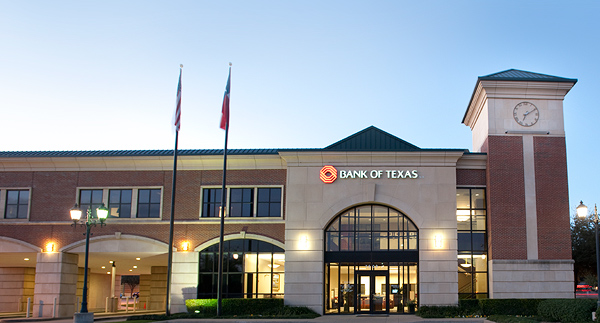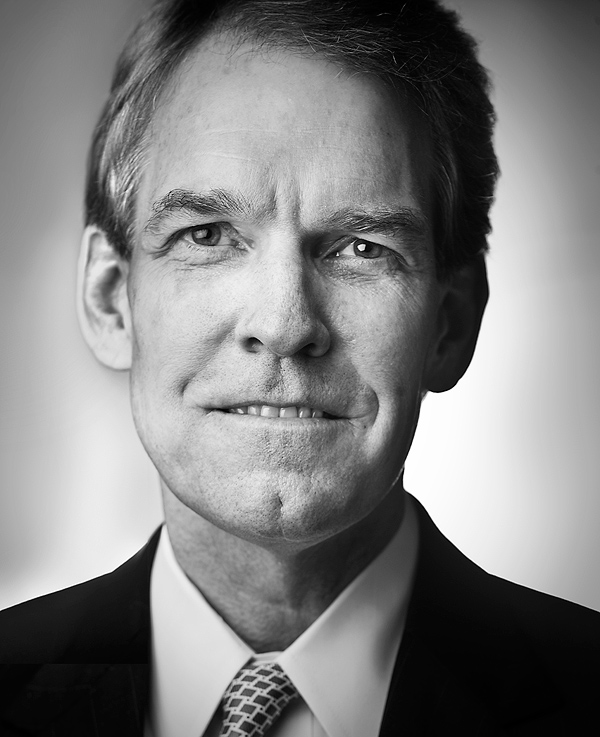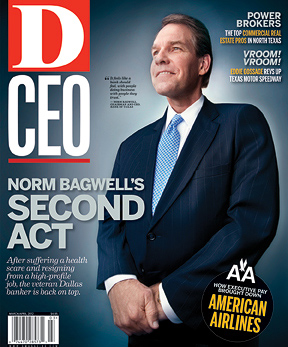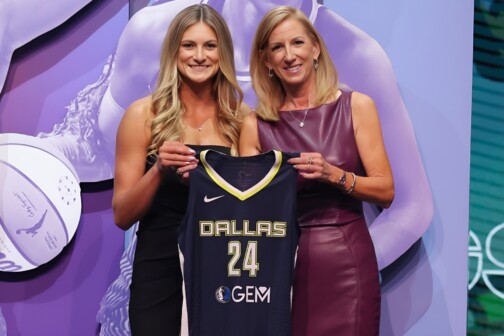Thirteen years later, he reached the top of the organization, and he still remembers the name of the recruiter who might have boxed him in.
MBank didn’t last nearly as long as Bagwell. It failed in 1989, costing the FDIC more than $2 billion in what was then the second-largest bank rescue ever. Bank One won the auction for the failed company, and Bagwell would ultimately work through six mergers in 19 years.
All that turmoil translated into opportunity, at least for a newcomer like Bagwell. His first break came in the late 1980s, when his team figured out how to funnel mortgage financing to banking subsidiaries. They created a legal structure to lend money to healthy mortgage units whose parent companies were failing or already under government control.
They packaged the investments in mortgage portfolios, which were usually sold to insurance companies and pension funds. That became a national business, and Bank One Dallas became the fifth-largest mortgage warehouse lender in the nation. Bagwell, named senior vice president of the mortgage finance group, was making his mark.
That led to his second break. In 1995, he was selected to manage the corporate banking division, which focused on lending to local companies.

“He did a fantastic job,” Steinhart says, adding that Bagwell grew Bank One’s middle-market business into the largest in Dallas.
That rounded out his experience, and three years later, he was president of Bank One Dallas. The late ’90s were a great time to be running a bank in North Texas. And the industry did well in the early 2000s, despite the tech downturn and the fallout from 9/11. The Texas
economy just kept percolating.
After Chase and Bank One merged, Bagwell says that working with Agather was the highlight. During that period, his kidney failure worsened, and he began to set up the transplant, a process that took more than a year.
Setting the Record Straight
Bagwell has an older brother and sister, but Robin had the best kidney match. Naturally, he had some misgivings, but not her. She told him that she was donating a kidney to somebody, so he better get in line.
Asked whether she had any negative effects, Bagwell says that she’d just won a tennis tournament in a recreation league. The couple have two children: daughter Lauren is a freshman at Baylor and son Nolan is a high school junior.
Bagwell didn’t reveal his illness to many people, preferring to gut it out and combat the fatigue with Diet Cokes. After surgery, his recovery took a few months, but he doesn’t recall any sick days beforehand. And he never linked his illness with his departure from Chase.
Although he remains on a regimen, like most transplant recipients, he got healthy almost immediately, and he wants to set the record straight: “I am not fragile,” he says.
In an email, Agather didn’t address Bagwell’s departure from Chase. But she said that he never wavered during his illness and always had a positive attitude. What’s most surprising is that Bagwell stuck around for three years.
“When you’re used to running a company, it’s hard to come in at a notch lower,” says Bill Lively, who spearheaded the region’s Super Bowl effort and has worked with Bagwell on many community initiatives. “It feels like you’re underachieving, because you know what you can do. And Norm can do it like few others.”
A smaller company doesn’t mean a smaller job, either. Albert Niemi Jr., dean of SMU’s Cox School of Business, had previously overseen a business school that was several times larger at the University of Georgia. But he says he has much more pull at SMU.
The same is probably true for Bagwell today. JPMorgan Chase, a global banking giant, is based in New York and is so big that even Texas’ influence is limited. In contrast, Bank of Texas accounted for about 30 percent of loans last year at BOK Financial, its corporate parent based in Tulsa, Okla.
“By being in a smaller organization, sometimes you can have a more dramatic impact,” says Niemi, who met Bagwell shortly after Niemi was recruited to SMU.
Like Bagwell, Niemi, who sits on an advisory board for Bank of Texas, considered switching fields at one time. He weighed an offer to become a top executive at a securities firm, and he was urged to run for Congress. Ultimately, he says, he looked in the mirror and decided that academia was what he knew and loved.
So his next stop was SMU, where he’s been for almost 15 years. Says Niemi: “There’s nothing finer than saying, ‘Let’s do it again.’”
Norm Bagwell is living proof.





